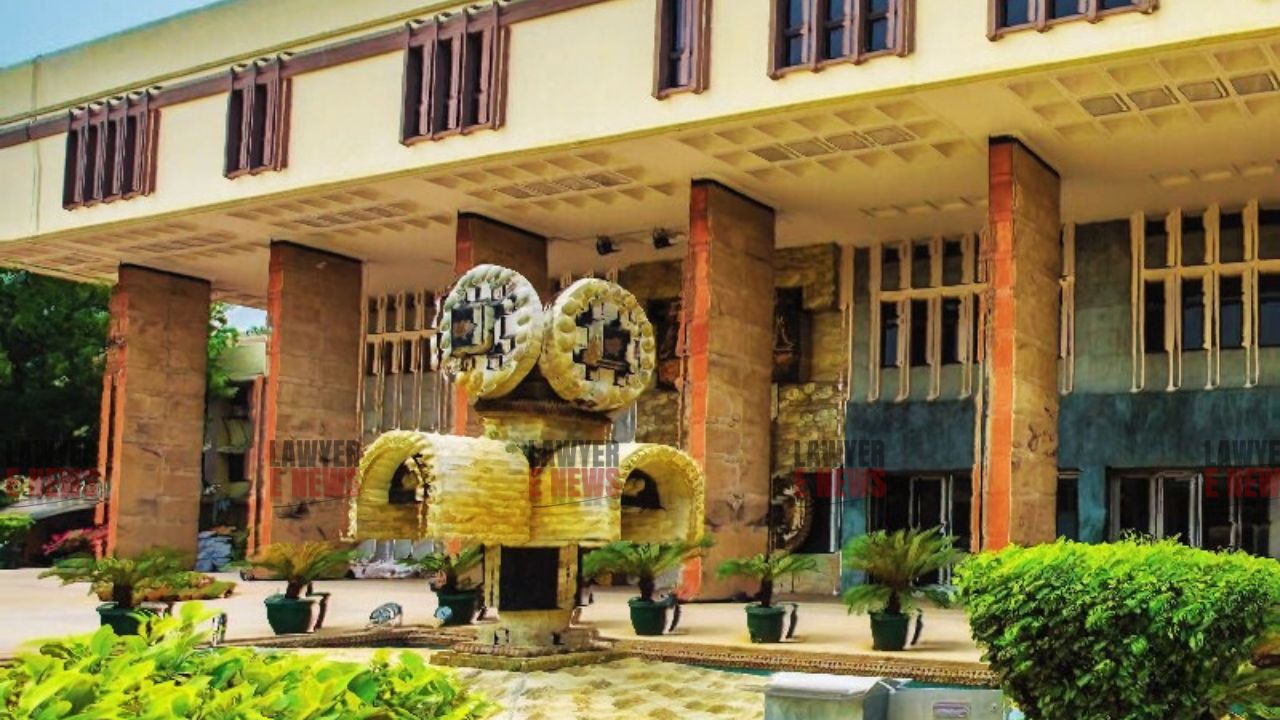-
by Admin
15 February 2026 5:35 AM



Delhi High Court addressed the rights of a daughter-in-law to reside in a shared household under the Protection of Women from Domestic Violence Act, 2005 (DV Act). Justice Neena Bansal Krishna upheld the decision of the lower courts, affirming that while a woman has a right to reside in a shared household, this right is not absolute. The Court directed the husband to provide alternate accommodation for the petitioner in case of eviction from the shared household.
The petitioner, Tanu Gupta, was married to Nikhil Gupta (respondent No. 2) on July 12, 2016, and began residing at a property in Rohini, Delhi, owned by her father-in-law (respondent No. 3). After marital discord arose, her in-laws and husband left the shared household. The petitioner filed a complaint under the DV Act, seeking protection of her right to reside in the shared household and maintenance.
The learned Magistrate initially granted interim protection and restrained the respondents from dispossessing her from the shared household. However, the father-in-law subsequently filed a civil suit for possession of the property, and the Magistrate recalled the earlier order, noting that the petitioner’s employment and financial independence did not necessitate further maintenance. The Sessions Court upheld this decision, prompting the petitioner to file the present petition under Section 482/483 of the Code of Criminal Procedure (Cr.P.C.).
The key legal issue was whether the petitioner had an absolute right to reside in the shared household, despite the property being owned by her father-in-law, and whether the recall of the interim maintenance order was justified given her employment status.
Relevant Statutory Provisions:
Section 19 of the DV Act: Protects a woman's right to reside in a shared household and provides for the possibility of alternate accommodation in case of eviction.
Section 2(s) of the DV Act: Defines a "shared household" as a residence where the aggrieved woman lived in a domestic relationship.
Right to Reside in Shared Household: The Court acknowledged that the petitioner had the right to reside in the shared household under Section 2(s) of the DV Act since she had been living there after her marriage. However, this right was not absolute. The Supreme Court's ruling in Satish Chander Ahuja v. Sneha Ahuja established that while the daughter-in-law has a right to reside in the shared household, she can be evicted following due process of law, provided alternate accommodation is arranged.
“The right to residence is not indefeasible; it is subject to the conditions under Section 19 of the DV Act. Alternate accommodation must be provided to the aggrieved woman if the owner seeks possession of the property," the Court noted.
Balance of Rights: The Court emphasized the need to balance the petitioner’s right to reside in the shared household with the father-in-law's right to peaceful enjoyment of his property. The respondents had a legitimate right to file a civil suit for possession of the property, and the Court found no fault in their actions.
"While the daughter-in-law’s right to residence is recognized, it must be balanced with the rights of senior citizens to live peacefully in their property. The respondent is within his legal rights to seek possession through due process," the Court stated.
Financial Independence and Maintenance: The petitioner’s interim maintenance was withdrawn after she admitted to being employed and earning Rs. 40,000 per month. The Court upheld this decision, affirming that her financial independence justified the recall of maintenance.
"Given that the petitioner is employed and financially independent, the recall of the interim maintenance order is justified," the Court observed.
Justice Neena Bansal Krishna upheld the order of the learned Magistrate and the Sessions Judge, concluding that the petitioner’s right to reside in the shared household was not absolute. The Court reiterated that the father-in-law, as the owner of the property, was entitled to seek possession through legal means, and the DV Act provided for eviction, provided alternate accommodation was arranged.
Alternate Accommodation: The Court directed the husband (respondent No. 2) to provide suitable alternate accommodation or pay rent for such accommodation in the same locality, as required under Section 19(1)(f) of the DV Act.
"The husband is directed to arrange for alternate accommodation for the petitioner or pay rent for the same, ensuring that the petitioner is not left without a roof over her head," the Court ordered.
The Delhi High Court dismissed the petition, holding that the right to reside in the shared household is not absolute and that the father-in-law, as the owner, could seek possession through due legal process. The Court upheld the order requiring the husband to provide alternate accommodation, thus balancing the rights of both parties.
The petition was found to lack merit and was dismissed.
Tanu Gupta v. State of NCT of Delhi & Others
Date of Decision: October 21, 2024
